|
Starting Monday July 15 Rev. Rob has been on vacation, and will be returning to St. Luke's on Monday August 12. While he's away our Honorary Cleric, the Rev. Canon Cathy Laskey, will be covering one Sunday, and our excellent team of Lay Readers will be leading our other In-Person services of Morning Prayer. For this Sunday, and the Morning Prayer Sundays when he is away, Rev. Rob has prepared Reflection Questions to help us engage with the Scripture Readings for the week. The reading of Holy Scripture together as a community has been a central part of Christian worship throughout the Church’s long history. It has deep roots within the spiritual practices of Israel, and sustains God’s people today. We read Scripture together not simply to learn new information about God’s dealings with humanity in the past, but to listen in faith to what the Living God is saying to us His people today. It is a profound act of worship, a way of turning of our full attention to our Lord. We listen to His Word to draw closer to Him, and to one another in love. After every Scripture Reading in our At-Home Morning Prayer service, you're invited to take a few moments in silence to reflect upon the passage, and how God’s Spirit might be addressing us through it, as individuals and as a community. In those moments, pay attention to any words, ideas, or images from the reading that stand out to you. In the silence afterwards, ask God to help you hear His word for you today. After the Gospel Reading, take 1-2 minutes to reflect, and then read over this week's Reflection Questions. Take whatever time you need to prayerfully sit with these questions, taking notes if you find it helpful, or perhaps even returning to the questions throughout the week. In addition to these Reflection Questions, we'll also have a link to a short Bible Project video exploring a different Biblical theme. This week's video is about the theme of Justice. Our service of Morning Prayer, Bulletin, & Reflection Questions this week can be found here: And our Songs for this week can be found here:
0 Comments
Starting Monday July 15 Rev. Rob will be on vacation, and will be returning to St. Luke's on Monday August 12. While he's away our Honorary Cleric, the Rev. Canon Cathy Laskey, will be covering one Sunday, and our excellent team of Lay Readers will be leading our other In-Person services of Morning Prayer. For this Sunday, and the Morning Prayer Sundays when he is away, Rev. Rob has prepared Reflection Questions to help us engage with the Scripture Readings for the week. The reading of Holy Scripture together as a community has been a central part of Christian worship throughout the Church’s long history. It has deep roots within the spiritual practices of Israel, and sustains God’s people today. We read Scripture together not simply to learn new information about God’s dealings with humanity in the past, but to listen in faith to what the Living God is saying to us His people today. It is a profound act of worship, a way of turning of our full attention to our Lord. We listen to His Word to draw closer to Him, and to one another in love. After every Scripture Reading in our At-Home Morning Prayer service, you're invited to take a few moments in silence to reflect upon the passage, and how God’s Spirit might be addressing us through it, as individuals and as a community. In those moments, pay attention to any words, ideas, or images from the reading that stand out to you. In the silence afterwards, ask God to help you hear His word for you today. After the Gospel Reading, take 1-2 minutes to reflect, and then read over this week's Reflection Questions. Take whatever time you need to prayerfully sit with these questions, taking notes if you find it helpful, or perhaps even returning to the questions throughout the week. In addition to these Reflection Questions, we'll also have a link to a short Bible Project video exploring a different Biblical theme. This week's video is about the word Witness. Our service of Morning Prayer, Bulletin, & Reflection Questions this week can be found here: And our Songs for this week can be found here: Today marks the Fourth Sunday of Lent, a sacred season for Christians to prepare in mind, body, and spirit, for the events of Holy Week, and the commemoration of the betrayal, death, and resurrection of our Saviour, Jesus Christ. Some of the traditional practices of the season of Lent include fasting, study of Scripture, prayerful reflection, and generous almsgiving. To help us grow in our faith and engage the Holy Scriptures with greater understanding, each week in Lent we will be sharing a link to a video from the Bible Project, from their series exploring the books of the Torah: Genesis, Exodus, Leviticus, and Deuteronomy. Here is a link to the fifth and sixth videos, unpacking the Books of Leviticus and Numbers: For those who want to explore this theme a bit more in depth, check out their 7 Episode Podcast series discussing questions raised by these videos on the books of the Torah, found here: Our service of Morning Prayer, Bulletin, and Reflection Questions this week can be found here: And our Songs this week can be found here:
The reading of Holy Scripture together as a community has been a central part of Christian worship throughout the Church’s long history, and it has deep roots within the spiritual and communal practices of Israel. We read Holy Scripture together not simply to learn new information about God’s dealings with humanity in the past, but also to listen in faith to what the Living God is saying to us His people today. We listen to His Word to draw closer to Him, and to one another. This week, as we did for much of the Summer, we will be engaging with the Scriptures in a more open-ended way: carving out some time for silent contemplation, as well as sharing some questions for further reflection, rather than having our usual Sermons. After every Scripture Reading in the At-Home Morning Prayer service, we’re all invited to take a few moments (1-2 minutes) in silence to reflect upon the passage, and how God’s Spirit might be addressing us through it, as individuals or as a community. In those moments, pay attention to any words, ideas, or images that stand out to you. In the silence afterwards, ask God to help you hear His heart for you today. After the Gospel is read, and we’ve taken a moment to in silence to reflect upon it, review the Reflection Questions for the week that Pastor Rob has prepared to help us dig in a bit deeper. In addition, here is a link to a short video put out by the Bible Project exploring the important practice of the Communal or Public Reading of Scripture. Our service of Morning Prayer, Bulletin, & Reflection Questions this week can be found here: And our Songs for this week can be found here:
Starting Monday July 17, Rev. Rob has been on vacation, and will be returning to St. Luke's this Monday August 14. While he's away, our excellent team of Lay Readers will be leading our In-Person services of Morning Prayer, and Rev. Rob has prepared Reflection Questions each week to help us engage with our Sunday the Scripture Readings. The reading of Holy Scripture together as a community has been a central part of Christian worship throughout the Church’s long history. It has deep roots within the spiritual practices of Israel, and sustains God’s people today. We read Scripture together not simply to learn new information about God’s dealings with humanity in the past, but to listen in faith to what the Living God is saying to us His people today. It is in fact a profound act of worship, a turning of our full attention to our Lord. We listen to His Word to draw closer to Him, and to one another in love. After every Scripture Reading in our At-Home Morning Prayer service, you're invited to take a few moments in silence to reflect upon the passage, and how God’s Spirit might be addressing us through it, as individuals and as a community. In those moments, pay attention to any words, ideas, or images from the reading that stand out to you. In the silence afterwards, ask God to help you hear His word for you today. After the Gospel Reading, take 1-2 minutes to reflect, and then read over this week's Reflection Questions. Take whatever time you need to prayerfully sit with these questions, taking notes if you find it helpful, or perhaps even returning to the questions throughout the week. In addition to our Reflection Questions, we'll also have a link to a short Bible Project video from their "How To Read Biblical Narrative" series, helping us to read the story of the Bible with even more understanding. This week, the video is called "The Gospel", and the link can be found right here: May God bless you as you seek to hear His voice, and draw near to Him in faith, hope, and love. Our service of Morning Prayer, Bulletin, & Reflection Questions this week can be found here: And our Songs for this week can be found here:
Starting Monday July 17, Rev. Rob has been on vacation, and will be returning to St. Luke's on Monday August 14. While he's away, our excellent team of Lay Readers will be leading our In-Person services of Morning Prayer, and Rev. Rob has prepared Reflection Questions each week to help us engage with our Sunday the Scripture Readings. The reading of Holy Scripture together as a community has been a central part of Christian worship throughout the Church’s long history. It has deep roots within the spiritual practices of Israel, and sustains God’s people today. We read Scripture together not simply to learn new information about God’s dealings with humanity in the past, but to listen in faith to what the Living God is saying to us His people today. It is in fact a profound act of worship, a turning of our full attention to our Lord. We listen to His Word to draw closer to Him, and to one another in love. After every Scripture Reading in our At-Home Morning Prayer service, you're invited to take a few moments in silence to reflect upon the passage, and how God’s Spirit might be addressing us through it, as individuals and as a community. In those moments, pay attention to any words, ideas, or images from the reading that stand out to you. In the silence afterwards, ask God to help you hear His word for you today. After the Gospel Reading, take 1-2 minutes to reflect, and then read over this week's Reflection Questions. Take whatever time you need to prayerfully sit with these questions, taking notes if you find it helpful, or perhaps even returning to the questions throughout the week. In addition to our Reflection Questions, we'll also have a link to a short Bible Project video from their "How To Read Biblical Narrative" series, helping us to read the story of the Bible with even more understanding. This week, the video is called "Design Patterns", and the link can be found right here: May God bless you as you seek to hear His voice, and draw near to Him in faith, hope, and love. Our service of Morning Prayer, Bulletin, & Reflection Questions this week can be found here: And our Songs for this week can be found here:
Starting Monday July 17, Rev. Rob has been on vacation, and will be returning to St. Luke's on Monday August 14. While he's away, our excellent team of Lay Readers will be leading our In-Person services of Morning Prayer, and Rev. Rob has prepared Reflection Questions each week to help us engage with our Sunday the Scripture Readings. The reading of Holy Scripture together as a community has been a central part of Christian worship throughout the Church’s long history. It has deep roots within the spiritual practices of Israel, and sustains God’s people today. We read Scripture together not simply to learn new information about God’s dealings with humanity in the past, but to listen in faith to what the Living God is saying to us His people today. It is in fact a profound act of worship, a turning of our full attention to our Lord. We listen to His Word to draw closer to Him, and to one another in love. After every Scripture Reading in our At-Home Morning Prayer service, you're invited to take a few moments in silence to reflect upon the passage, and how God’s Spirit might be addressing us through it, as individuals and as a community. In those moments, pay attention to any words, ideas, or images from the reading that stand out to you. In the silence afterwards, ask God to help you hear His word for you today. After the Gospel Reading, take 1-2 minutes to reflect, and then read over this week's Reflection Questions. Take whatever time you need to prayerfully sit with these questions, taking notes if you find it helpful, or perhaps even returning to the questions throughout the week. In addition to our Reflection Questions, we'll also have a link to a short Bible Project video from their "How To Read Biblical Narrative" series, helping us to read the story of the Bible with even more understanding. This week, the video is called "Setting", and the link can be found right here: May God bless you as you seek to hear His voice, and draw near to Him in faith, hope, and love. Our service of Morning Prayer, Bulletin, & Reflection Questions this week can be found here: And our Songs for this week can be found here:
Starting last Monday (July 17), Rev. Rob has been on vacation, returning to St. Luke's on Monday August 14. While he's away, our excellent team of Lay Readers will be leading our In-Person services of Morning Prayer, and Rev. Rob has prepared Reflection Questions each week to help us engage with our Sunday the Scripture Readings. The reading of Holy Scripture together as a community has been a central part of Christian worship throughout the Church’s long history. It has deep roots within the spiritual practices of Israel, and sustains God’s people today. We read Scripture together not simply to learn new information about God’s dealings with humanity in the past, but to listen in faith to what the Living God is saying to us His people today. It is in fact a profound act of worship, a turning of our full attention to our Lord. We listen to His Word to draw closer to Him, and to one another in love. After every Scripture Reading in our At-Home Morning Prayer service, you're invited to take a few moments in silence to reflect upon the passage, and how God’s Spirit might be addressing us through it, as individuals and as a community. In those moments, pay attention to any words, ideas, or images from the reading that stand out to you. In the silence afterwards, ask God to help you hear His word for you today. After the Gospel Reading, take 1-2 minutes to reflect, and then read over this week's Reflection Questions. Take whatever time you need to prayerfully sit with these questions, taking notes if you find it helpful, or perhaps even returning to the questions throughout the week. In addition to our Reflection Questions, we'll also have a link to a short Bible Project video from their "How To Read Biblical Narrative" series, helping us to read the story of the Bible with even more understanding. This week, the video is called "Character", and the link can be found right here: May God bless you as you seek to hear His voice, and draw near to Him in faith, hope, and love Our service of Morning Prayer, Bulletin, & Reflection Questions this week can be found here: And our Songs for this week can be found here: Starting this Monday (July 17), Rev. Rob will be on vacation, returning to St. Luke's on Monday August 14. While he's away, our excellent team of Lay Readers will be leading our In-Person services of Morning Prayer, and Rev. Rob has prepared Reflection Questions each week to help us engage with our Sunday the Scripture Readings. Even though Rev. Rob is still with us In-Person this week, he's prepared Reflection Questions this week instead of a Sermon to help us get into this practice together. The reading of Holy Scripture together as a community has been a central part of Christian worship throughout the Church’s long history. It has deep roots within the spiritual practices of Israel, and sustains God’s people today. We read Scripture together not simply to learn new information about God’s dealings with humanity in the past, but to listen in faith to what the Living God is saying to us His people today. It is in fact a profound act of worship, a turning of our full attention to our Lord. We listen to His Word to draw closer to Him, and to one another in love. After every Scripture Reading in our At-Home Morning Prayer service, you're invited to take a few moments in silence to reflect upon the passage, and how God’s Spirit might be addressing us through it, as individuals and as a community. In those moments, pay attention to any words, ideas, or images from the reading that stand out to you. In the silence afterwards, ask God to help you hear His word for you today. After the Gospel Reading, take 1-2 minutes to reflect, and then read over this week's Reflection Questions. Take whatever time you need to prayerfully sit with these questions, taking notes if you find it helpful, or perhaps even returning to the questions throughout the week. In addition to our Reflection Questions, we'll also have a link to a short Bible Project video from their "How To Read Biblical Narrative" series, helping us to read the story of the Bible with even more understanding. This week, the video is called "Plot", and the link can be found right here: May God bless you as you seek to hear His voice, and draw near to Him in faith, hope, and love Our service of Morning Prayer, Bulletin, & Reflection Questions this week can be found here: And our Songs for this week can be found here:
The reading of Holy Scripture together as a community has been a central part of Christian worship throughout the Church’s long history, and it has deep roots within the spiritual and communal practices of Israel. We read Holy Scripture together not simply to learn new information about God’s dealings with humanity in the past, but also to listen in faith to what the Living God is saying to us His people today. We listen to His Word to draw closer to Him, and to one another. This week, as we did for much of the Summer, we will be engaging with the Scriptures in a more open-ended way: carving out some time for silent contemplation, as well as sharing some questions for further reflection, rather than having our usual Sermons. After every Scripture Reading in the At-Home Morning Prayer service, we’re all invited to take a few moments (1-2 minutes) in silence to reflect upon the passage, and how God’s Spirit might be addressing us through it, as individuals or as a community. In those moments, pay attention to any words, ideas, or images that stand out to you. In the silence afterwards, ask God to help you hear His heart for you today. After the Gospel is read, and we’ve taken a moment to in silence to reflect upon it, review the Reflection Questions for the week that Pastor Rob has prepared to help us dig in a bit deeper. Our service of Morning Prayer, Bulletin, & Reflection Questions this week can be found here: And our Songs for this week can be found here: The reading of Holy Scripture together as a community has been a central part of Christian worship throughout the Church’s long history, and it has deep roots within the spiritual and communal practices of Israel. We read Holy Scripture together not simply to learn new information about God’s dealings with humanity in the past, but also to listen in faith to what the Living God is saying to us His people today. We listen to His Word to draw closer to Him, and to one another. For one more week, we will be engaging with the Scriptures in a more open-ended way: carving out some time for silent contemplation, as well as sharing some questions for further reflection, rather than having our usual Sermons. After every Scripture Reading in the At-Home Morning Prayer service, we’re all invited to take a few moments (1-2 minutes) in silence to reflect upon the passage, and how God’s Spirit might be addressing us through it, as individuals or as a community. In those moments, pay attention to any words, ideas, or images that stand out to you. In the silence afterwards, ask God to help you hear His heart for you today. After the Gospel is read, and we’ve taken a moment to in silence to reflect upon it, review the Reflection Questions for the week that Pastor Rob has prepared to help us dig in a bit deeper. Our service of Morning Prayer, Bulletin, & Reflection Questions this week can be found here: And our Songs for this week can be found here: The reading of Holy Scripture together as a community has been a central part of Christian worship throughout the Church’s long history, and it has deep roots within the spiritual and communal practices of Israel. We read Holy Scripture together not simply to learn new information about God’s dealings with humanity in the past, but also to listen in faith to what the Living God is saying to us His people today. We listen to His Word to draw closer to Him, and to one another. For the next two weeks, we will be engaging with the Scriptures in a more open-ended way: carving out some time for silent contemplation, as well as sharing some questions for further reflection, rather than having our usual Sermons. After every Scripture Reading in the At-Home Morning Prayer service, we’re all invited to take a few moments (1-2 minutes) in silence to reflect upon the passage, and how God’s Spirit might be addressing us through it, as individuals or as a community. In those moments, pay attention to any words, ideas, or images that stand out to you. In the silence afterwards, ask God to help you hear His heart for you today. After the Gospel is read, and we’ve taken a moment to in silence to reflect upon it, review the Reflection Questions for the week that Pastor Rob has prepared to help us dig in a bit deeper. Our service of Morning Prayer, Bulletin, & Reflection Questions this week can be found here: And our Songs for this week can be found here: The reading of Holy Scripture together as a community has been a central part of Christian worship throughout the Church’s long history, and it has deep roots within the spiritual and communal practices of Israel. We read Holy Scripture together not simply to learn new information about God’s dealings with humanity in the past, but also to listen in faith to what the Living God is saying to us His people today. We listen to His Word to draw closer to Him, and to one another. For the next three weeks, we will be engaging with the Scriptures in a more open-ended way: carving out some time for silent contemplation, as well as sharing some questions for further reflection, rather than having our usual Sermons. After every Scripture Reading in the At-Home Morning Prayer service, we’re all invited to take a few moments (1-2 minutes) in silence to reflect upon the passage, and how God’s Spirit might be addressing us through it, as individuals or as a community. In those moments, pay attention to any words, ideas, or images that stand out to you. In the silence afterwards, ask God to help you hear His heart for you today. After the Gospel is read, and we’ve taken a moment to in silence to reflect upon it, review the Reflection Questions for the week that Pastor Rob has prepared to help us dig in a bit deeper. Our service of Morning Prayer, Bulletin, & Reflection Questions this week can be found here: And our Songs for this week can be found here:
The reading of Holy Scripture together as a community has been a central part of Christian worship throughout the Church’s long history, and it has deep roots within the spiritual and communal practices of Israel. We read Holy Scripture together not simply to learn new information about God’s dealings with humanity in the past, but also to listen in faith to what the Living God is saying to us His people today. We listen to His Word to draw closer to Him, and to one another. For the next four weeks, we will be engaging with the Scriptures in a more open-ended way: carving out some time for silent contemplation, as well as sharing some questions for further reflection, rather than having our usual Sermons. After every Scripture Reading in the At-Home Morning Prayer service, we’re all invited to take a few moments (1-2 minutes) in silence to reflect upon the passage, and how God’s Spirit might be addressing us through it, as individuals or as a community. In those moments, pay attention to any words, ideas, or images that stand out to you. In the silence afterwards, ask God to help you hear His heart for you today. After the Gospel is read, and we’ve taken a moment to in silence to reflect upon it, review the Reflection Questions for the week that Pastor Rob has prepared to help us dig in a bit deeper. Our service of Morning Prayer, Bulletin, & Reflection Questions this week can be found here:
And our Songs for this week can be found here: The reading of Holy Scripture together as a community has been a central part of Christian worship throughout the Church’s long history, and it has deep roots within the spiritual and communal practices of Israel. We read Holy Scripture together not simply to learn new information about God’s dealings with humanity in the past, but also to listen in faith to what the Living God is saying to us His people today. We listen to His Word to draw closer to Him, and to one another. For the next five weeks, we will be engaging with the Scriptures in a more open-ended way: carving out some time for silent contemplation, as well as sharing some questions for further reflection, rather than having our usual Sermons. After every Scripture Reading in the At-Home Morning Prayer service, we’re all invited to take a few moments (1-2 minutes) in silence to reflect upon the passage, and how God’s Spirit might be addressing us through it, as individuals or as a community. In those moments, pay attention to any words, ideas, or images that stand out to you. In the silence afterwards, ask God to help you hear His heart for you today. After the Gospel is read, and we’ve taken a moment to in silence to reflect upon it, review the Reflection Questions for the week that Pastor Rob has prepared to help us dig in a bit deeper. Our service of Morning Prayer, Bulletin, & Reflection Questions this week can be found here:
And our Songs for this week can be found here: |
Rev. RObRev. Rob serves as the Priest-in-Charge at St. Luke's Gondola Point, and as the School Chaplain at Rothesay Netherwood School Archives
June 2024
Categories
All
|
|
5 Quispamsis Road, Quispamsis NB, E2E 1M2
Mail to: 12 Quispamsis Road, Quispamsis NB E2E 1M2 |
Contact Us
Parish Phone: 506-847-3670 | www.stlukesgp.ca | www.facebook.com/StLukesGP/ Rev. Rob: 506-608-1772 | [email protected] |
Proudly powered by Weebly


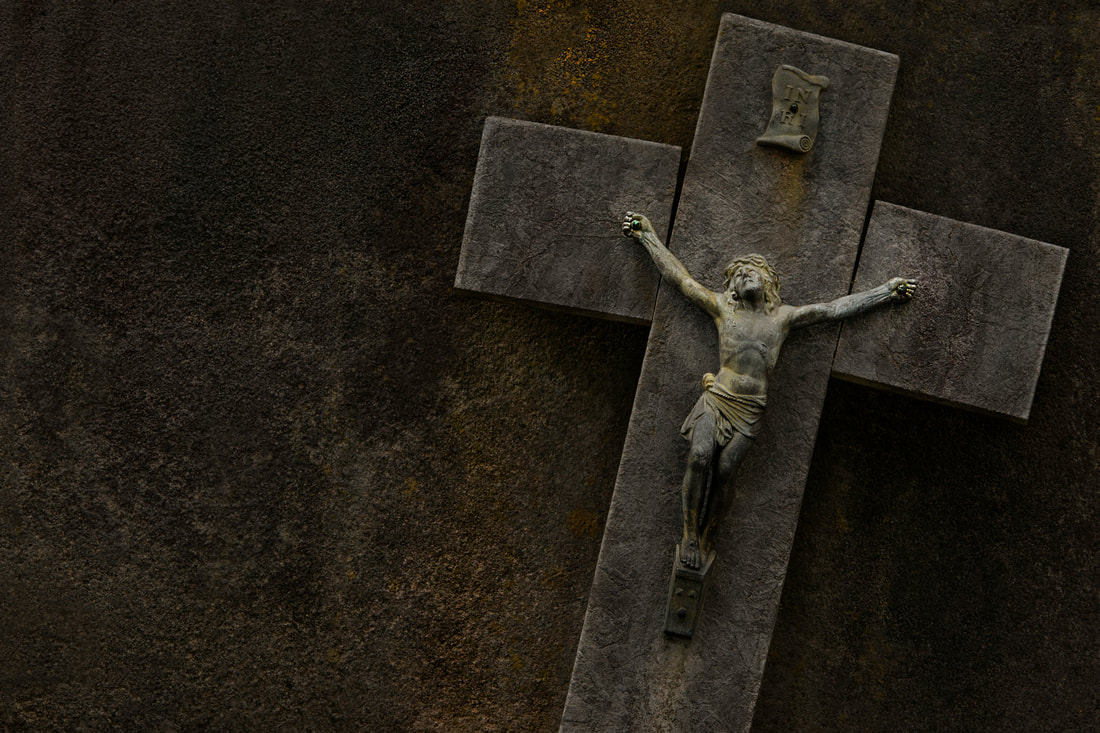
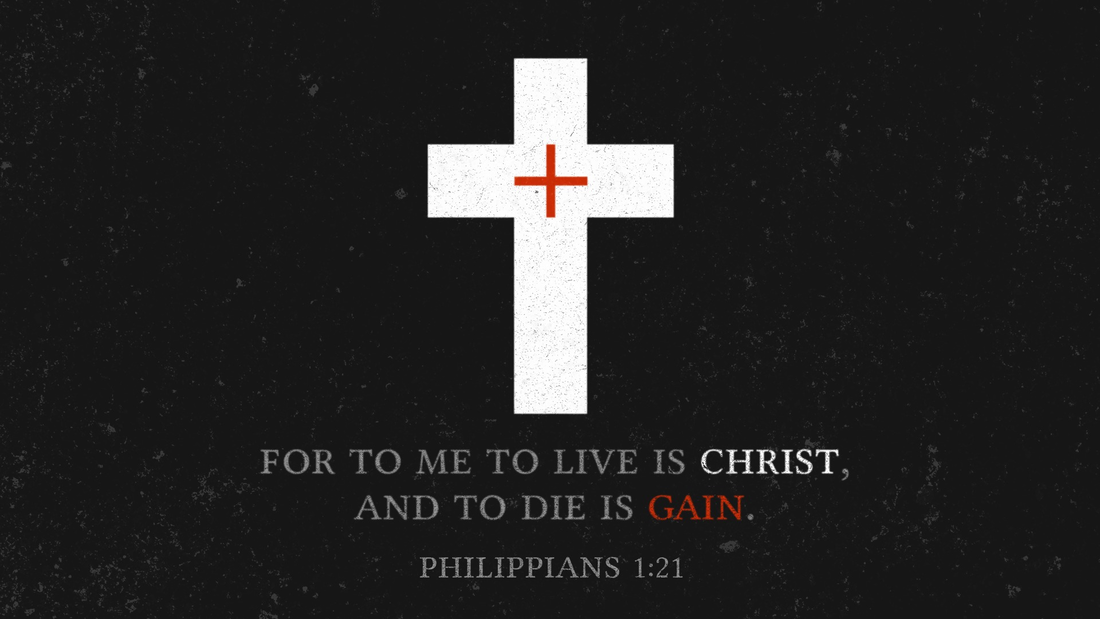
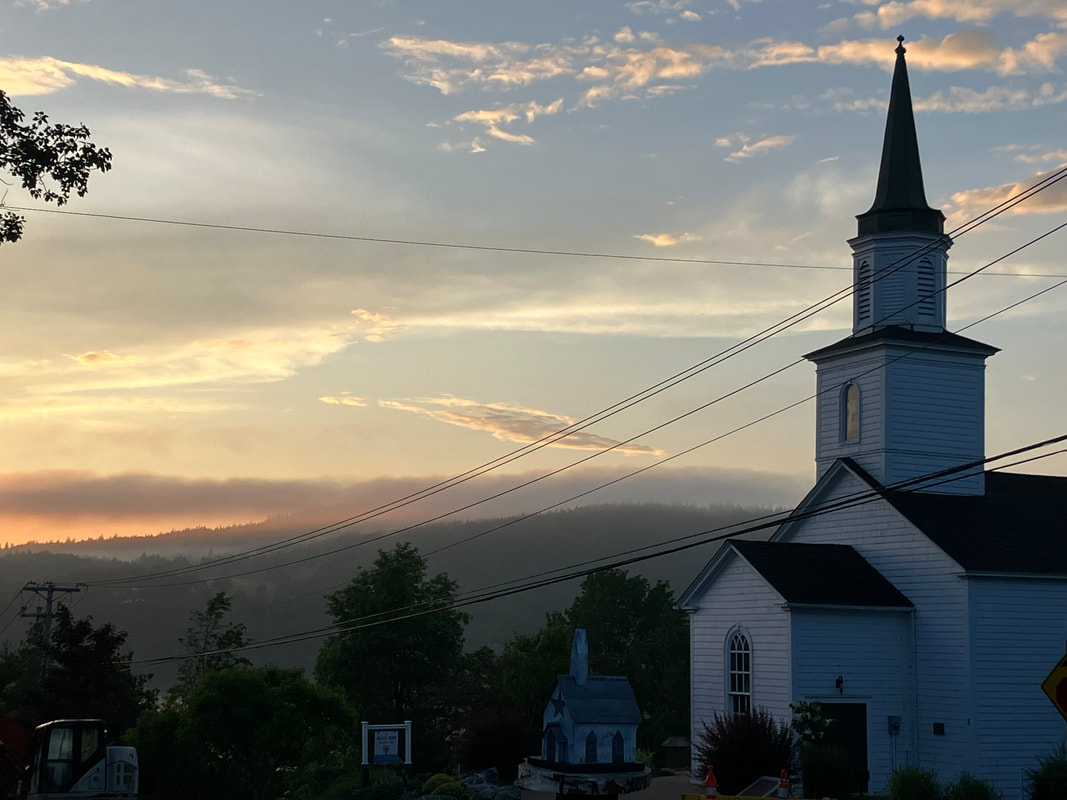
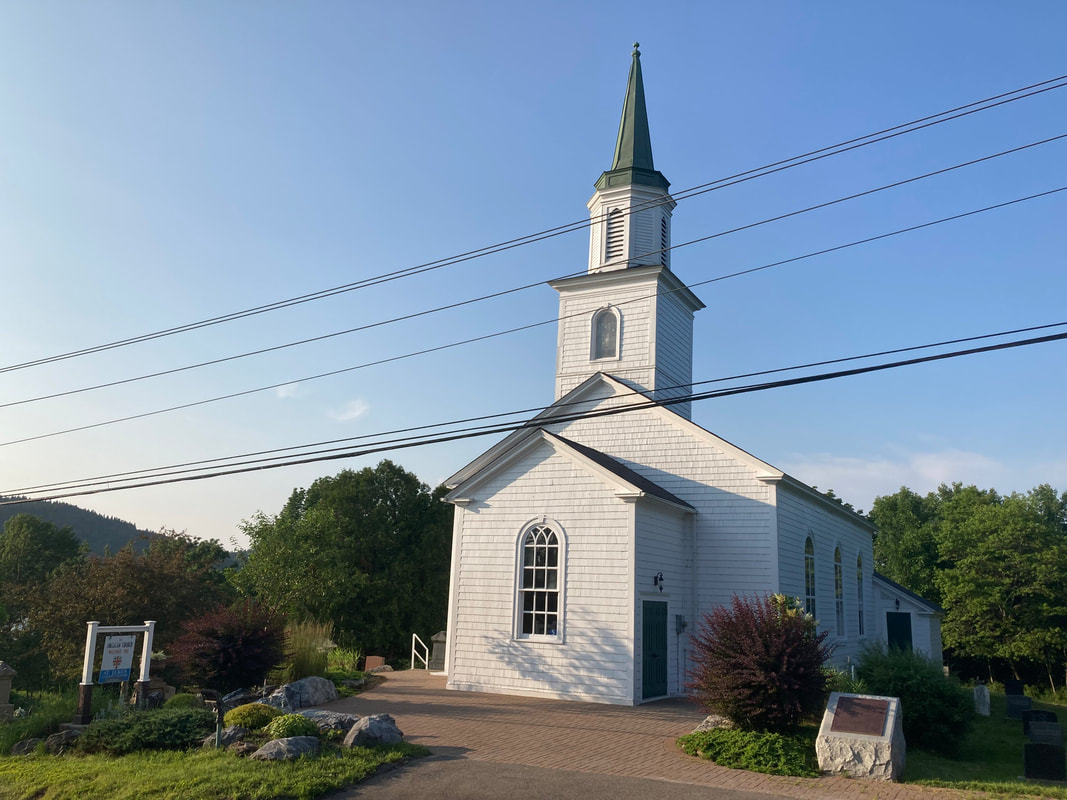
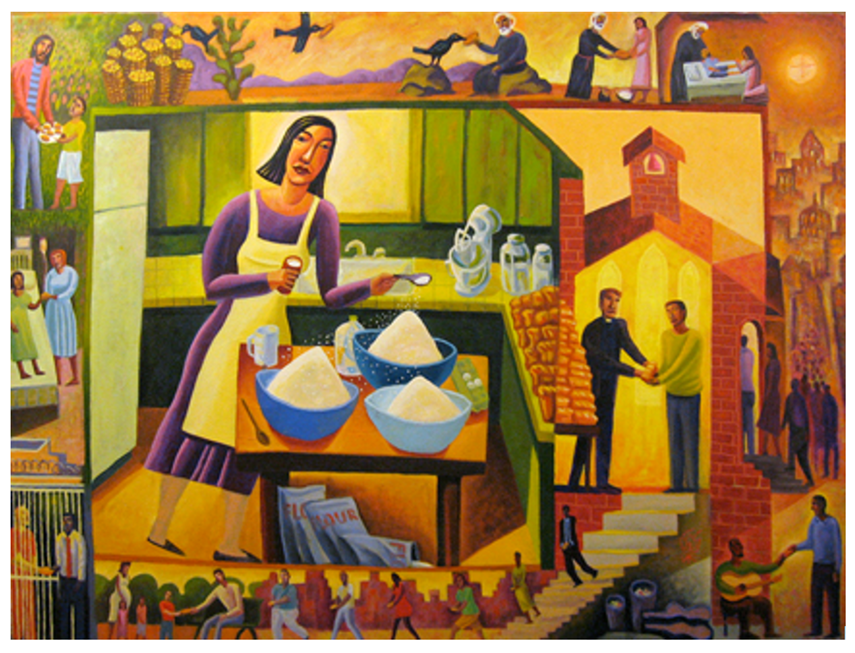



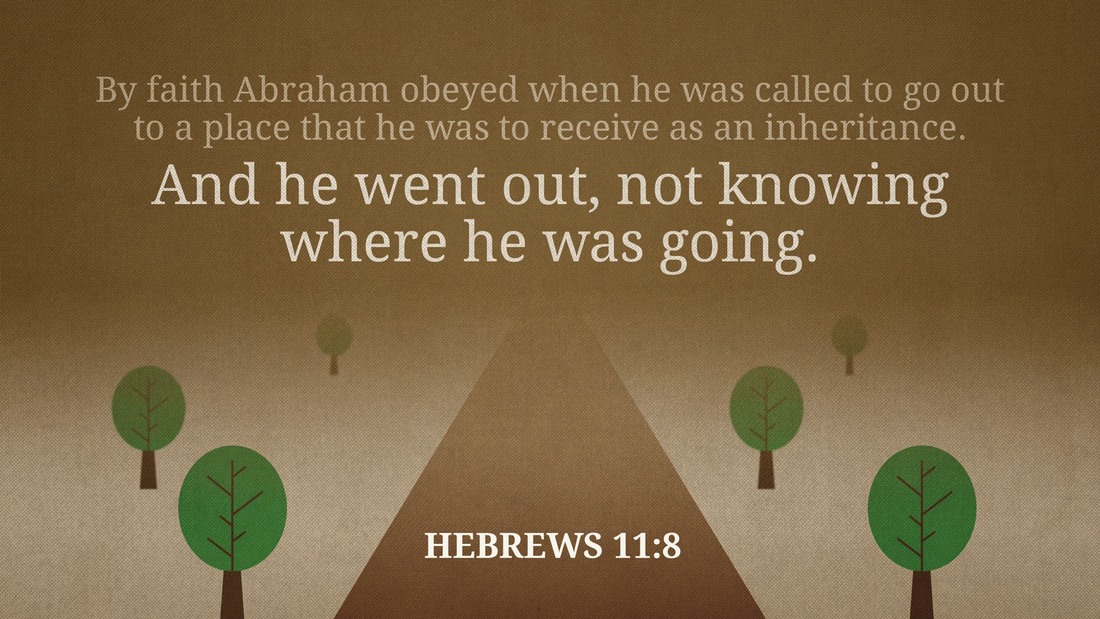
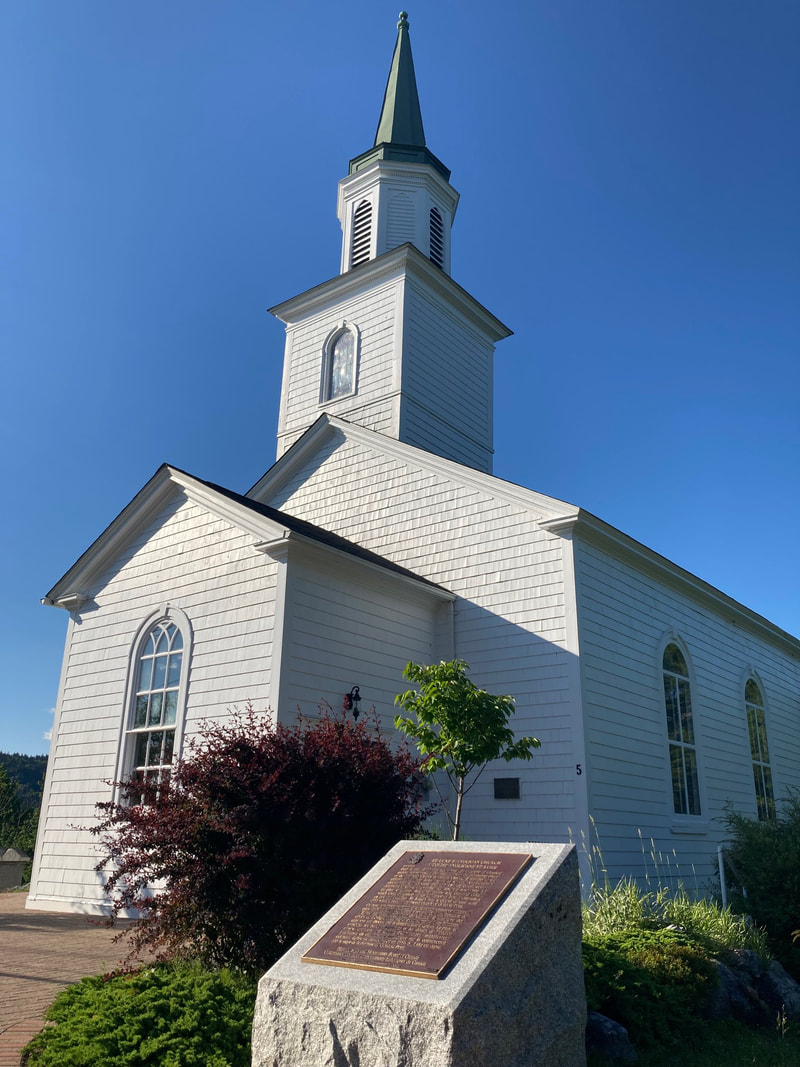
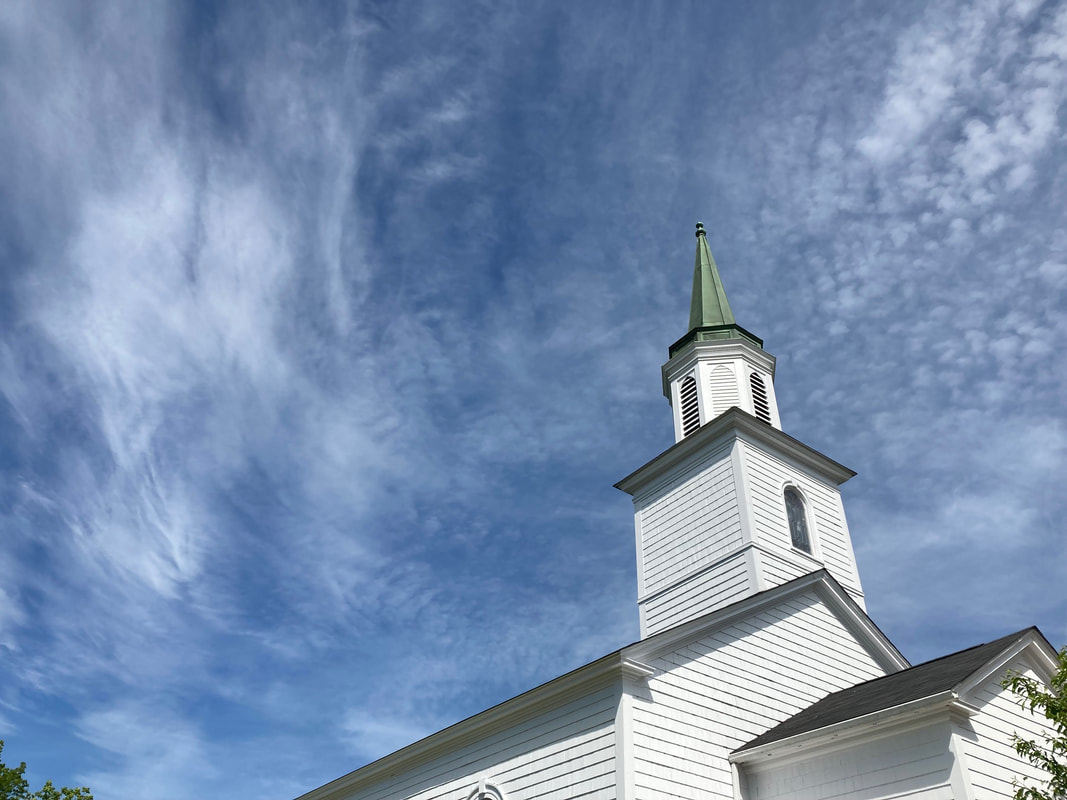
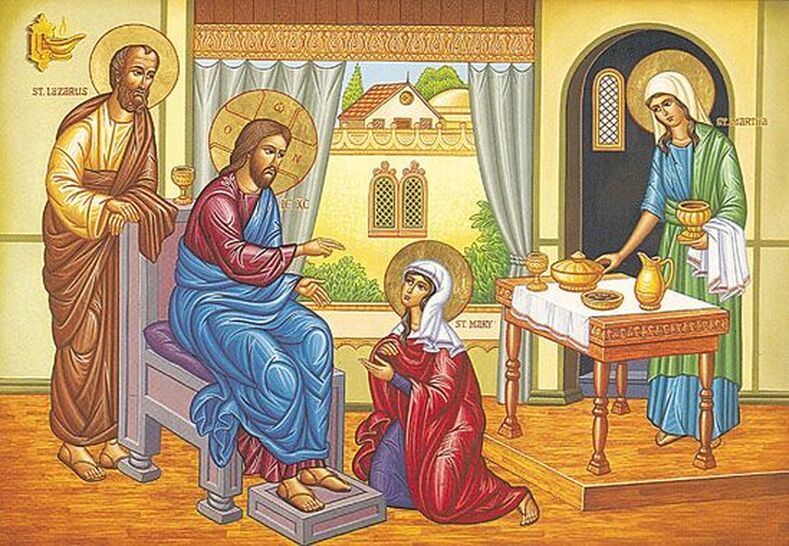
 RSS Feed
RSS Feed
